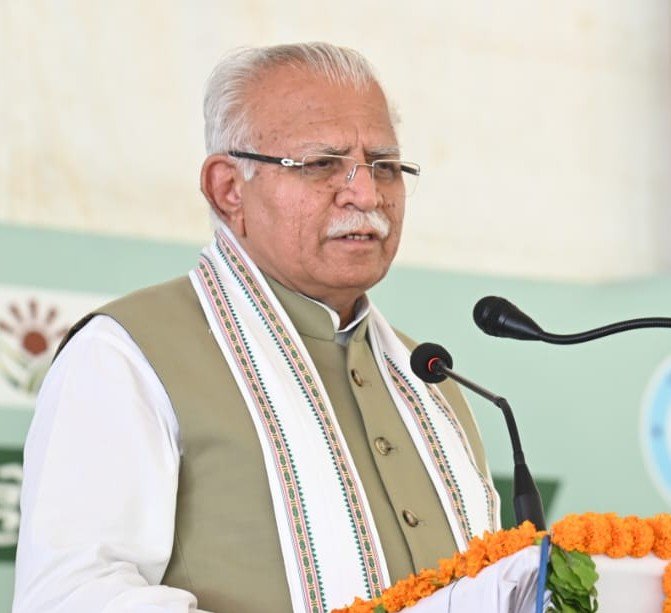Chandigarh, August 2 — In a landmark initiative to blend ecological restoration with urban progress, Union Minister for Housing and Urban Affairs and Energy, Manohar Lal, along with Union Environment, Forest and Climate Change Minister Bhupendra Yadav, laid the foundation stone of the upcoming Matri Van project in Gurugram’s Sector 54. The sprawling 750-acre green expanse will be developed within the Aravalli mountain range as part of the “Ek Ped Maa Ke Naam” campaign, aimed at promoting environmental consciousness and honoring motherhood through afforestation.
Manohar Lal emphasized that Gurugram, widely recognized for its rapid urban development and global connectivity, must now align its growth trajectory with sustainable and nature-centric practices. Speaking at the Van Mahotsav celebration, he underlined the importance of long-term commitment to tree care, stating that tree plantation should not be limited to ceremonial gestures but must be accompanied by a five to six-year nurturing plan. The Matri Van, he said, is not just for Gurugram’s ecological balance but also a vital solution to Delhi’s deteriorating air quality.
The project, initiated under the guidance of Haryana’s Forest, Environment, and Wildlife Minister Rao Narbir Singh, envisions a lush forest ecosystem that replaces small invasive species like Kabuli Kikar with native and culturally significant trees such as Banyan, Peepal, Gular, Neem, Bamboo, and Tamarind. The forest will also incorporate specialized botanical features like Nakshatra Vatika, Rashi Vatika, a Cactus Garden, and a Butterfly Park, creating both a biodiverse habitat and a natural retreat for city dwellers.
Union Minister Bhupendra Yadav, while addressing the gathering, highlighted the larger vision of ecological restoration under the Green Aravalli Project. As part of this initiative, saplings of indigenous tree species are being cultivated across 29 districts spanning five states. This strategic effort not only supports biodiversity but also aims to combat desertification, improve groundwater recharge, and enhance local climate resilience.
During his address, Manohar Lal cited the environmental responsibility each individual bears, pointing out that an average person emits nearly 1 kilogram of carbon daily, while a tree absorbs only 60 to 90 grams. This ecological imbalance, he noted, underscores the urgency for at least 15 to 16 trees per person to maintain carbon neutrality. In this context, he described the Matri Van as an “ecological necessity” for urban centers like Gurugram and a step toward healing the air pollution crisis affecting the National Capital Region.
The Matri Van project aligns with India’s broader environmental vision inspired by Prime Minister Narendra Modi’s call to plant trees in honor of mothers. It marks a shift from reactive to proactive environmental planning—blending cultural values, urban development, and sustainability into one cohesive mission.
This news is sourced from web media and is based on inputs from international news websites.




